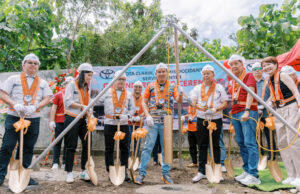The Philippines is cementing its place in regional venture capital

THE PHILIPPINES is making waves in Southeast Asia’s venture capital scene. A record-breaking $1.12 billion in deals in 2024 signals a maturing startup ecosystem, drawing international investors and shifting the region’s investment balance. But beyond the headline numbers, a deeper question remains: how do Filipinos ensure that this is sustained dominance and not just a cyclical peak?
Our recent report, “The Philippine Venture Capital Report 2025,” published by Foxmont Capital Partners and Boston Consulting Group (BCG), reveals a striking shift: the Philippines captured 19% of total funds raised in Southeast Asia in 2024, up from just 5% three years prior. This jump isn’t just about quantity — it reflects a qualitative evolution. The ecosystem is moving beyond early-stage bets to larger, growth-stage deals exceeding $20 million.
Fintech continues to lead the charge, but direct-to-consumer and cleantech sectors are gaining momentum. More significantly, foreign investment inflows surged 45%, signaling confidence that the Philippines is no longer just a frontier market but a core player in Southeast Asia’s economic engine.
With growing interest from international investors, now is the perfect time to examine how local startups have adapted — and must continue to adapt — to an evolving market. In this case, we look at the potential of the rising middle class.
ENGINE OF TRANSFORMATIONBeyond venture capital, the Philippines’ economic landscape is being reshaped by a rising middle class. Since 2012, middle-income groups have expanded from 42% to 47.5% of the population, while the lowest-income bracket shrank by 39%. This shift isn’t just about statistics — it’s about behavior.
With incomes rising faster than expenses, savings rates have nearly doubled over two decades, reaching 27% in 2023. Spending is no longer purely necessity driven. Filipinos are prioritizing personal growth, aspirations, and experiences, fueling a “premiumization” trend. Consumers are willing to pay more for quality, and businesses that understand this shift stand to benefit.
FOUR SECTORS PRIMED FOR GROWTHWe see these economic changes creating tailwinds for four key industries.
Healthcare is experiencing a surge in demand as wellness becomes a priority, with increased interest in preventive care, insurance, and premium healthcare services.
In financial services, entrepreneurship is on the rise, with more than half of surveyed Filipinos aspiring to start their own business — making access to financing more critical than ever.
Meanwhile, energy consumption is rapidly increasing, as rising incomes drive demand for modern conveniences, manufacturing expansion, and retail growth. This puts pressure on the grid to improve efficiency, reliability, and sustainability.
Lastly, agriculture must evolve to meet the middle class’ growing appetite for higher-quality food, requiring innovations in supply chains, sustainable farming, and scalable production.
Businesses that recognize and adapt to these shifting behaviors and needs will be best positioned to lead — and win — in this evolving economic landscape.
THE AGRICULTURAL IMPERATIVEThe Philippines faces a looming food security challenge. The middle class’s demand for premium goods, combined with population growth, risks deepening the country’s reliance on imports and straining domestic production. Addressing this requires a deeper understanding of the factors that drive farm productivity — and the barriers that hold farmers back.
A survey commissioned by Foxmont Capital Partners and BCG, which examined a representative group of 300 farmers across the Philippines, provides insights into what separates well-performing farms from struggling ones. Education, access to technology and equipment, and third-party support emerged as key enablers of success.
However, farmers across the board face persistent challenges, including high input costs, volatile sales prices, climate-related risks, and limited access to finance. Closing the productivity gap requires better access to credit, technology (both digital and mechanical), and education — whether through cooperatives, private investment, or government intervention.
With 75% of farmers believing government support is insufficient, the private sector has a clear opportunity to step in, leveraging fintech, agritech, and data-driven financing solutions to modernize an industry that remains fundamental to national stability.
THE ROAD AHEADThe Philippines is cementing its place in private capital markets in the region. Venture capital is playing a critical role in its transition to a middle-income economy and can enable further growth together with the help of the public sector and other stakeholders.
Positive changes in the regulatory environment are creating opportunities for international investors to introduce global best practices to the local market. The investment boom is real, and by harnessing the country’s entrepreneurial mindset, the Philippines can unlock long-term prosperity and drive broad-based economic growth.
Bea Mantecon is director of Value Creation at Foxmont Capital Partners. Lance Katigbak is a principal at Boston Consulting Group’s Manila office. Read the full report here: https://tinyurl.com/26jvkmfe




